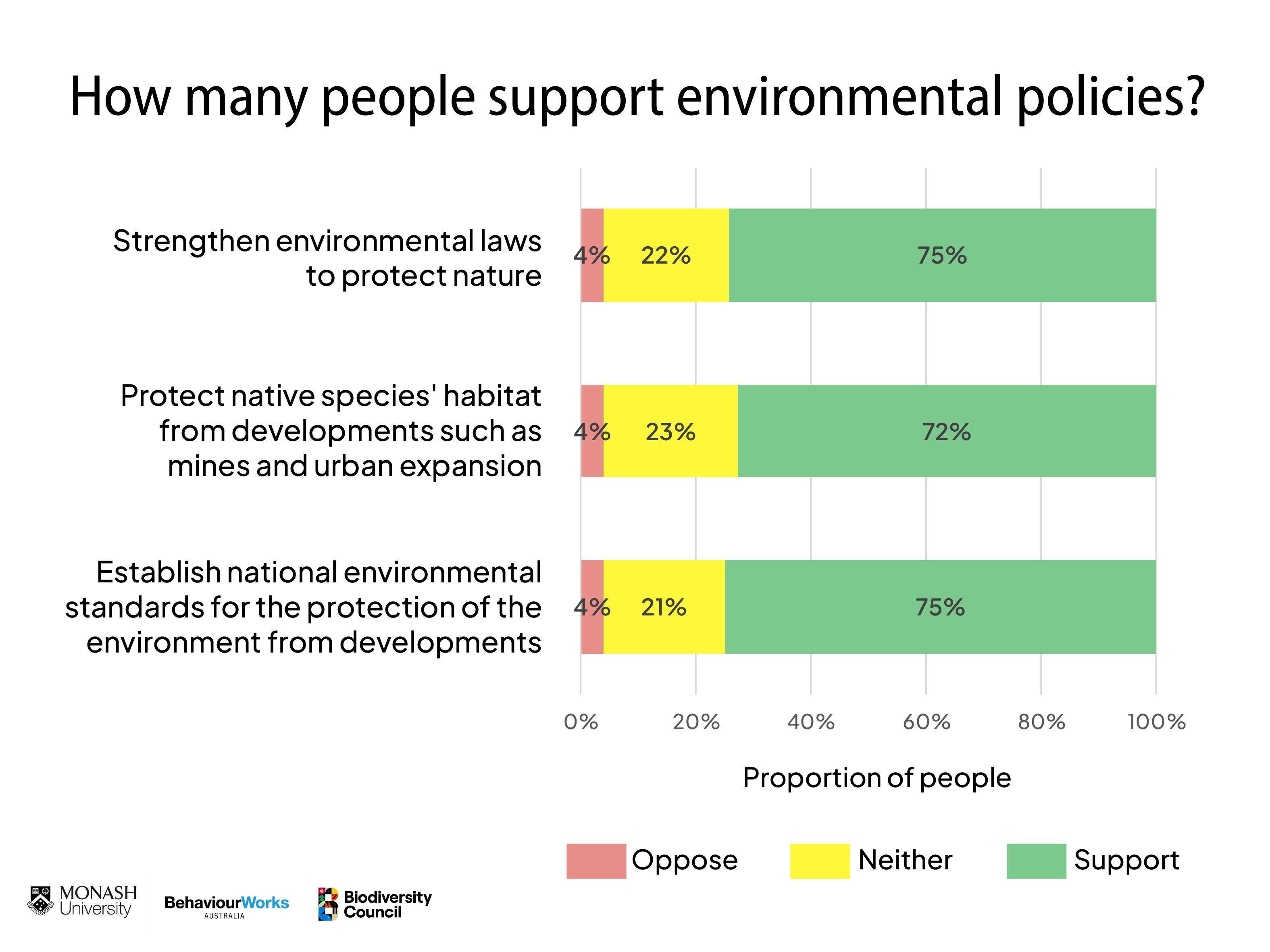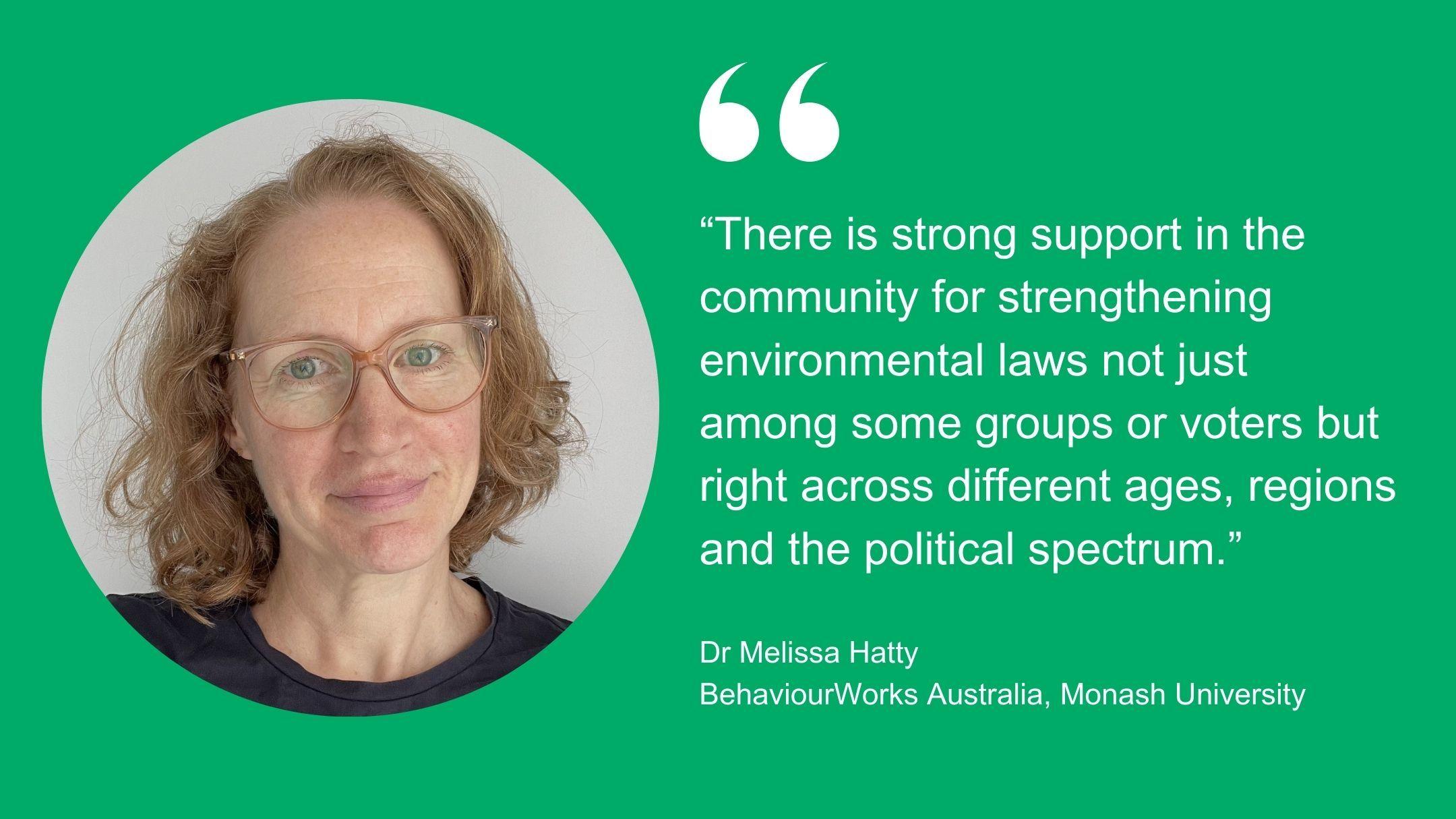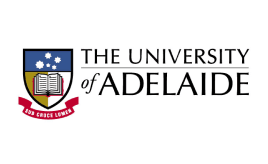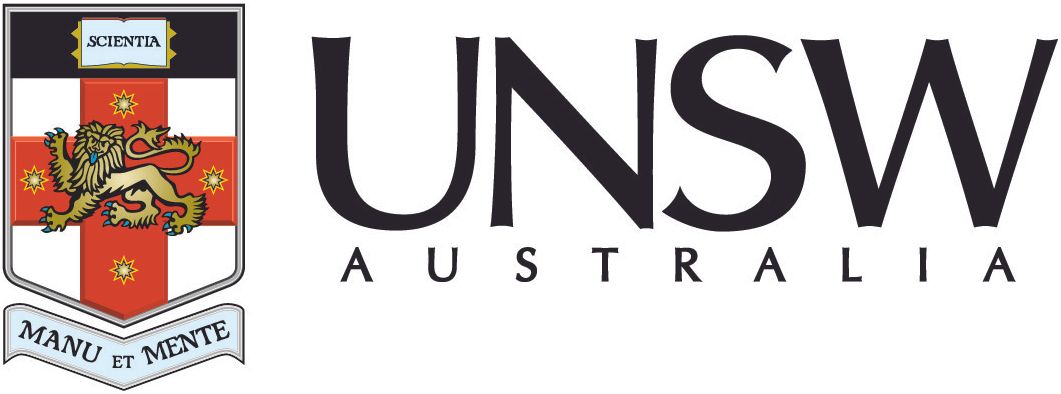An increasing majority of Australians back strengthening nature laws

Australians value the natural environment. Image: Indi Friday/Unsplash.
Media Release
31 January 2025
As Federal Parliament prepares to resume debate on the government’s Nature Positive Bills, a new study has revealed levels of support for the reforms within the Australian community.
Three-quarters (75%) of Australians support strengthening our national environmental laws according to the national survey of more than 3,500 people completed by Monash University’s BehaviourWorks Australia.
Only one in every 25 Australians (4%) are opposed to environmental law reform.
The research was commissioned by the Biodiversity Council as part of its annual survey of community attitudes to key biodiversity conservation issues facing Australia and how they are managed.
The survey is benchmarked against Australian Bureau of Statistics data to ensure that it fairly reflects the diversity of people in the community. The sample is almost three times the size of a standard newspoll.
The annual surveys reveal that the number of people who support strengthening our environmental laws is growing, from 73% in 2023 to 75% this year.

This year’s survey also found that three-quarters (75%) of Australians support and only 1 in 25 people (4%) are opposed to the establishment of national environmental standards to protect the environment.
The establishment of these standards was recommended by an independent review of Australia’s national environmental laws that was delivered in 2020 and backed by key experts and major industries.
The government’s Nature Positive Bills, which would reform the 25-year-old Environmental Protection and Biodiversity Conservation Act and establish national environmental standards, are currently stalled before the Senate.
Passing the bills will require the Prime Minister to support a deal with the Senate cross-bench, which is reported to hinge on establishing national environmental standards.
Dr Melissa Hatty from BehaviourWorks Australia led the social research.
“The results reveal a growing level of concern around nature conservation issues, even in the face of a cost of living crisis,” said Dr Hatty.
“This year's survey shows strong support in the community for strengthening environmental laws not just among some groups or voters but right across different ages, regions and the political spectrum.”

Biodiversity Council Director James Trezise said the community is feeling the loss of nature around them and looking to the government to do better for the environment.
"These results should give legislators confidence that the community supports environmental law reforms that result in stronger protection of the environment.”
“It has been five years since the independent review of the current laws found that they were ineffective. It is high time to see meaningful change.
“There was clearly a pathway for long-term meaningful reform for the Albanese Government’s Nature Positive Bills, so it is very disappointing that the Prime Minister was not willing to grasp the mantle.”
“This will remain an important issue for every Australian Government until the legislation is reformed to make effective at protecting the environment, less open to political interference and less bureaucratically cumbersome for the proponents of reasonable developments. “
A snapshot report is available that breaks down the research findings on levels of support according to political alignment, age, gender and urban/rural area type. A summary of these findings is presented below.
Survey findings according to political alignment:
Environmental law reform
- There was support across the political spectrum for strengthening environmental laws.
- The highest support was found in Greens (86%) and Labor (82%) and Independent voters (79%).
- There was also majority support within with Liberal (70%) and National Party (64%) voters.
National environmental standards
- There was support for establishing national environmental standards across the political spectrum.
- The highest support was found in Greens (83%), Labor (80%) and Independent voters (76%).
- There was also majority support within with Liberal (70%) and National Party (65%) voters.
Swing voters
Swing voters (ie those who identified as not having determined who they would support at the next upcoming election) showed strong support for strengthening environmental laws (76%), establishing national environmental standards (78%) and protecting important habitats from developments (74%).
There is very limited opposition to the policy initiatives sampled, with only 4% of Australians nationally indicating they were opposed to each of the policy initiatives tested.
The remaining 21% - 23% selected neither support nor oppose for each policy measure.














